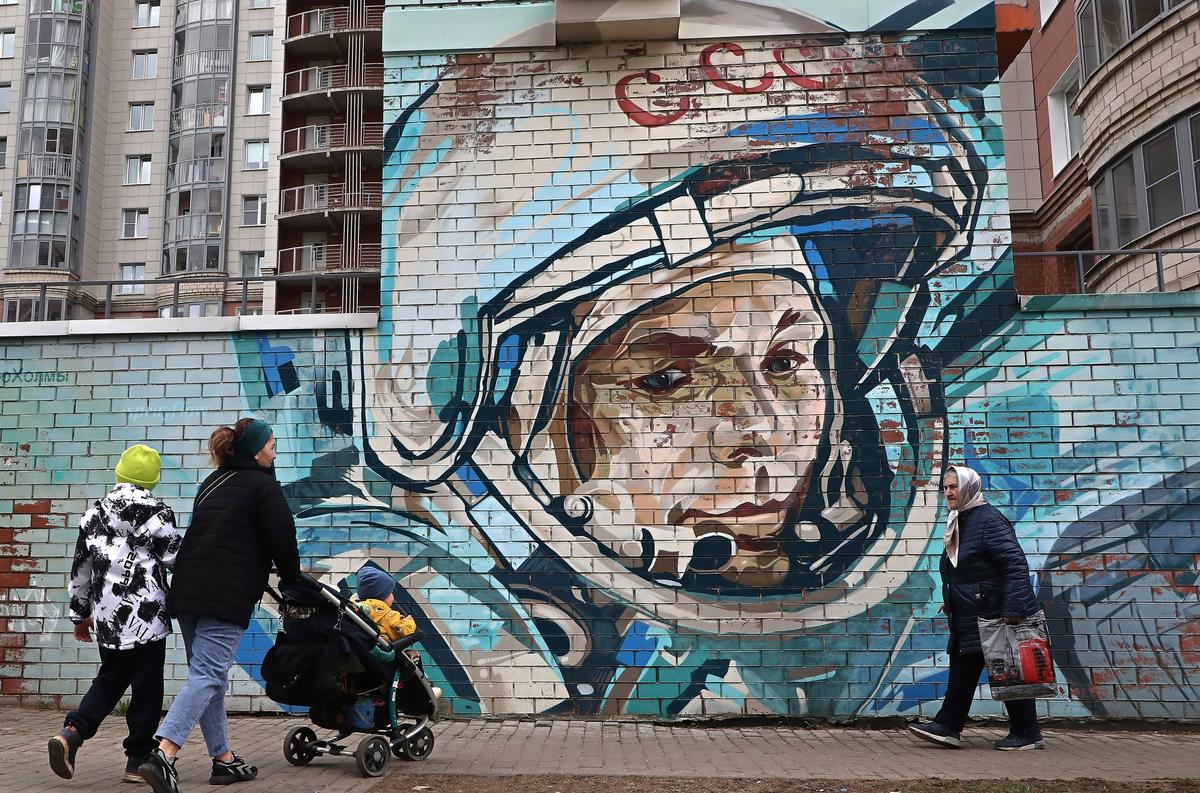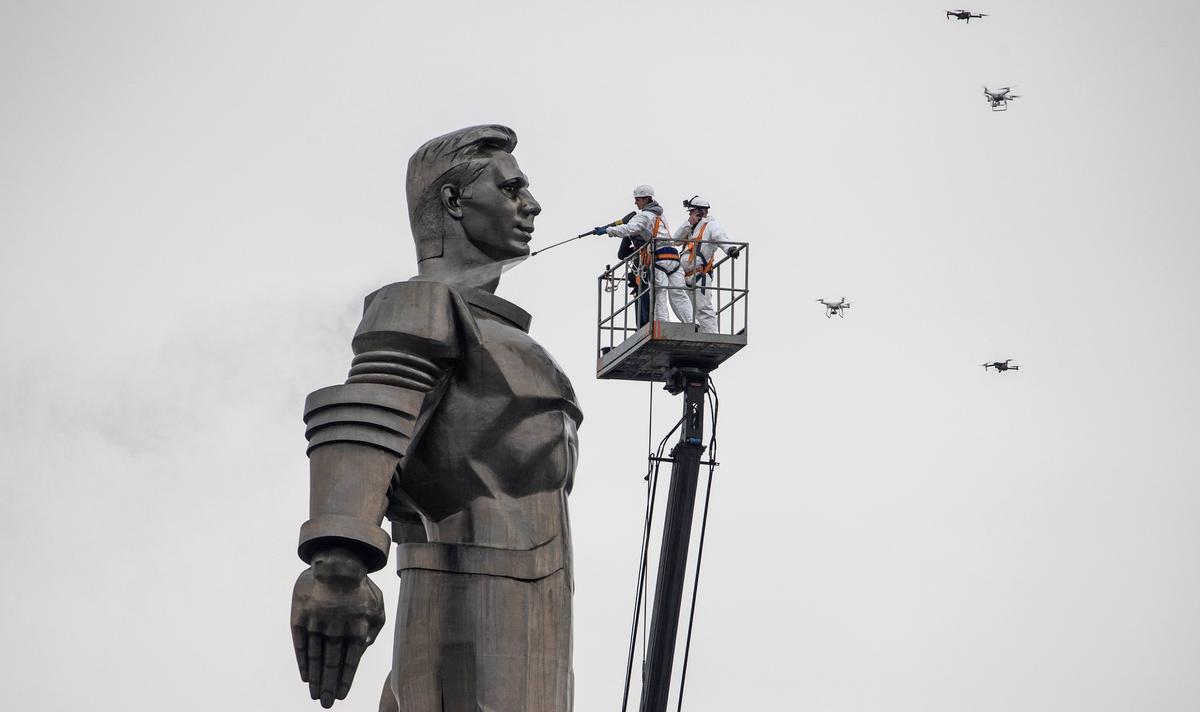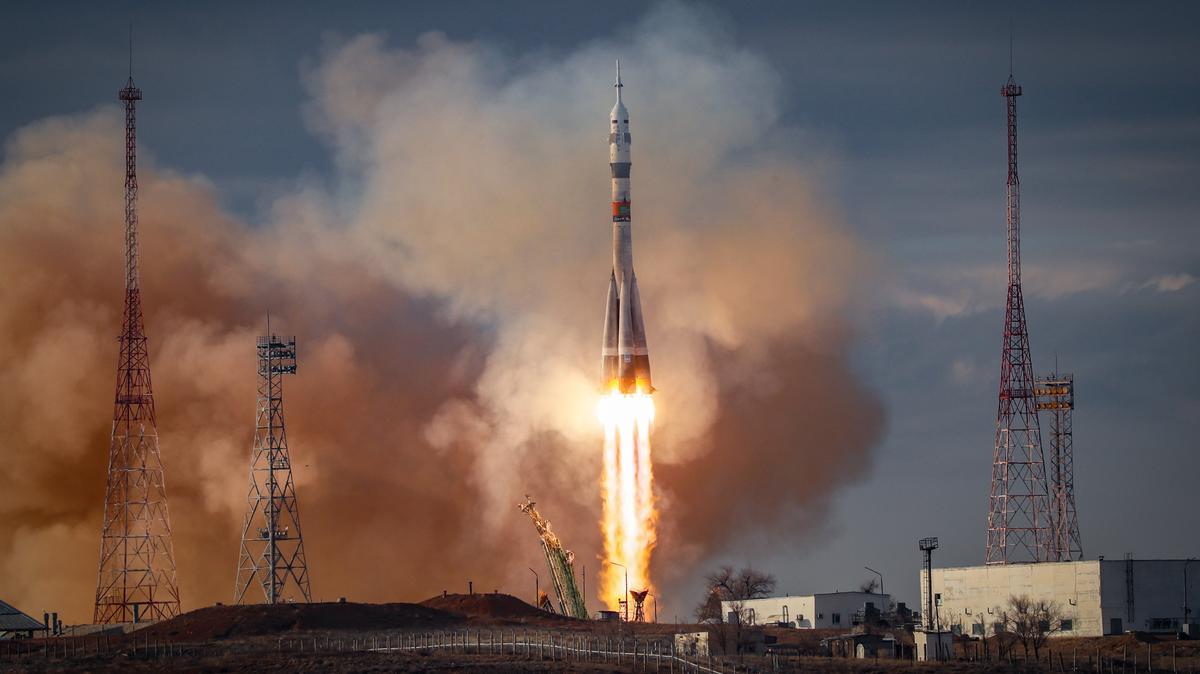At 9:07am on 12 April 1961, Yuri Gagarin’s rocket sped towards the sky in the first-ever manned mission to space, cementing the Soviet space programme’s place in history. Six decades later, with the Soviet Union a distant memory, a plan to modernise Gagarin’s Start, the launch site of the mission at the Baikonur Cosmodrome in Kazakhstan, was abandoned. How did one of the world’s leading space programmes find itself isolated, defunded and bereft of foreign investors?
Like any other Russian agency immediately after the collapse of the Soviet Union, Roscosmos suffered from the economic turmoil of the 1990s. As the majority of the agency’s rockets were made from components manufactured in Ukraine and Belarus, while its primary launch facility was located in Kazakhstan, the agency found its assets divided up among the former Soviet republics.
At the same time, the decision-making process within the programme devolved into a struggle for funding between the various design bureaus and subcommittees. Major strategic decisions, such as extending the lifetime of the Mir space station and creating a new family of launch vehicles, were bungled in an era now famous for its graft and embezzlement.
As it scrambled for alternative sources of funding to ensure its survival, Roscosmos was forced to resort to commercial stunts that included installing a giant inflatable Pepsi Can onto the International Space Station (ISS) in 1996 and hitting a golf ball into orbit from the ISS in 2006.
Despite these changes, however, an entity with such a storied history could have compromised and worked with its post-Soviet partners to realise its full potential, especially as the Russian economic boom of the early 2000s refilled the state’s coffers.
As the successor to the renowned Soviet space programme, Roscosmos had a massive advantage over its rivals in terms of experience, assets and prestige. By effectively exerting its influence and reputation, the agency could have forged partnerships with former Soviet republics which individually had very little scope to successfully pursue space exploration. It could also have tried to negotiate deals with emerging economies in Asia and Africa, which would have created a supply chain more resilient to sanctions.
Instead, Roscosmos began isolating itself from these potential partners. The agency’s approach to the Baikonur cosmodrome is a case in point; rather than seeking closer cooperation with Kazakhstan over the site, Roscosmos poured its limited funding into building its own brand new cosmodrome in the Russian Far East. These isolationist choices paved the way for the continued decline of Roscosmos in the decades that followed as the space programmes of China, India and Japan saw rapid development.

A mural honouring the first human in space, Yury Gagarin, in Krasnogorsk, near Moscow, 12 April 2024. Photo: EPA-EFE/MAXIM SHIPENKOV
Although at the turn of the century the Russian space programme dwarfed that of China in terms of experience and expertise, China’s space program actively pursued regional collaboration, surging ahead in the 21st century as its Russian counterpart languished in isolation.
In 2005, China founded the Asia-Pacific Space Cooperation Organization (APSCO), placing itself at the helm of a coalition of rapidly growing Asian economies. This emphasis on international cooperation largely insulated the Chinese space programme from sanctions, which could be bypassed through trade with its partners. China’s prudent assessment that cooperation was the future of 21st-century space exploration has therefore been vital to its success.

A giant monument to Yuri Gagarin is cleaned in Moscow. Photo: EPA-EFE/SERGEI ILNITSKY
Even China’s dominance in the Asian space industry need not have closed the door on a potential Roscosmos revival, however. Roscosmos could have increased its cooperation with Japan and India, two other nations which had begun channelling resources into their own space programmes in the face of China’s rise. Collaboration with India would have seemed a particularly fitting solution, given the history of close ties between the Indian and Soviet space programmes.
Instead, Roscosmos chose to see these agencies as rivals, and attempted to race India to the Moon with a new lunar lander called the Luna 25. Had it succeeded, Luna 25 would have marked Russia’s first return to the Moon since the Soviet era and would have touched down a few days ahead of India’s probe. Yet, in an incident symbolic of Roscosmos’s deterioration as a whole, it crashed into the lunar surface, while both India and Japan subsequently made successful landings.
Today, Russia’s future in space hangs by a thread, with any advantage it once enjoyed fading as the Soviet legacy drifts further into the past and the country slips into decline, isolation, and authoritarianism.
Unable to execute any of the large projects that are quickly becoming the standard of the approaching commercial space age, Roscosmos has become a second-rate space programme dependent on its Chinese counterpart. Today, Russia’s future in space hangs by a thread, with any advantage it once enjoyed fading as the Soviet legacy drifts further into the past and the country slips into decline, isolation, and authoritarianism.
The Chinese and Indian space programmes leave Roscosmos further behind with each new launch. Russia’s best opportunity to turn the tide would be the adoption of a stable, open and neutral policy focused on collaboration. Such a position might allow the country to use its advanced industries to assist other nations in their development while creating a large coalition of allies to advance its own ambitions in space.
Views expressed in opinion pieces do not necessarily reflect the position of Novaya Gazeta Europe.

Arseny Borisov is a Russian-American student and author of the Russia Tomorrow newsletter (futurerussia.substack.com).
Join us in rebuilding Novaya Gazeta Europe
The Russian government has banned independent media. We were forced to leave our country in order to keep doing our job, telling our readers about what is going on Russia, Ukraine and Europe.
We will continue fighting against warfare and dictatorship. We believe that freedom of speech is the most efficient antidote against tyranny. Support us financially to help us fight for peace and freedom.
By clicking the Support button, you agree to the processing of your personal data.
To cancel a regular donation, please write to [email protected]

